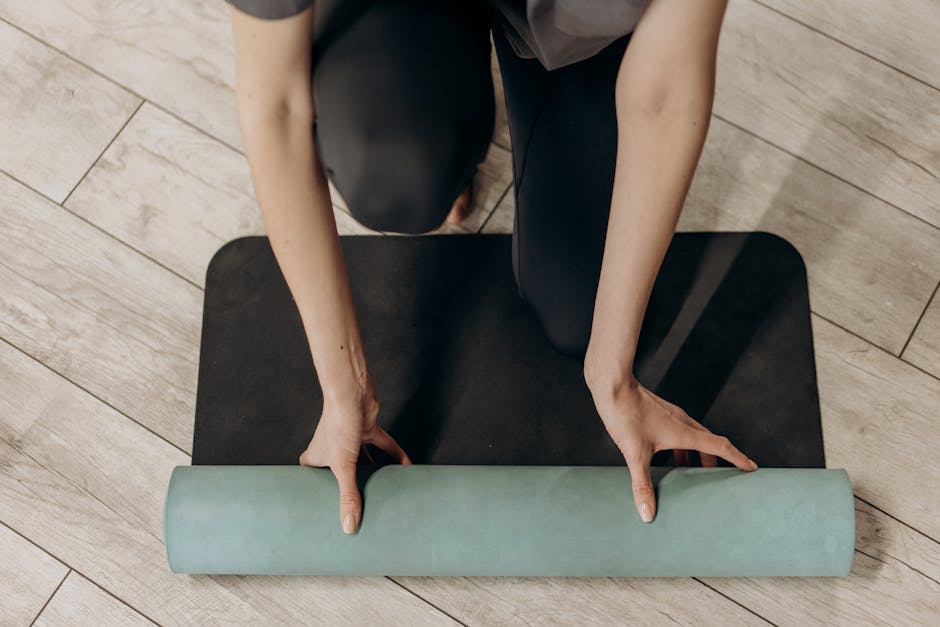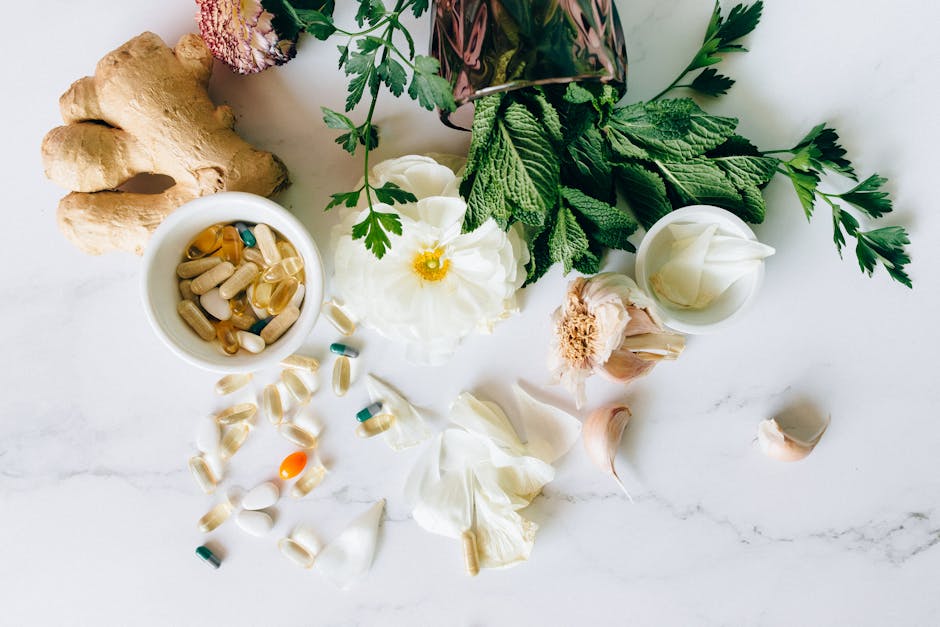
Top Chinese Herbs for Post Surgery Recovery You Need!
Chinese herbs have been used for centuries in traditional medicine, playing a vital role in promoting healing and recovery. They are often utilized to strengthen the body’s natural healing processes, especially after surgeries. The essence of these herbs lies in their ability to enhance blood circulation, reduce inflammation, and boost the immune system, all of which are crucial during post-surgery recovery.
One of the key benefits of using Chinese herbs for post-surgery recovery is their adaptogenic properties. Adaptogens are natural substances that help the body adapt to stressors, including physical trauma from surgery. These herbs can help mitigate the stress response, thereby accelerating the healing process.
Some of the most effective Chinese herbs include:
- Ginseng: Known for its energy-boosting properties, it supports overall vitality.
- Angelica Root (Dong Quai): Often used to improve blood circulation and reduce pain.
- Licorice Root: Helps in harmonizing other herbs and has anti-inflammatory effects.
- Turmeric: Contains curcumin, which is renowned for its powerful anti-inflammatory properties.
Incorporating these herbs into your recovery plan can significantly enhance your healing journey. By utilizing the wisdom of traditional Chinese medicine, you can achieve a smoother and more effective recovery process. Get them to follow us on social media.
Top Chinese Herbs Beneficial for Post Surgery Recovery

When it comes to post-surgery recovery, certain Chinese herbs stand out for their powerful healing properties. These herbs have been carefully selected based on their ability to support recovery, reduce inflammation, and promote overall wellness. Here are some of the top Chinese herbs that can be particularly beneficial after surgery:
- Rehmannia (Sheng Di Huang): This herb is renowned for its ability to nourish the blood and support kidney function, making it excellent for recovery.
- Huang Qi (Astragalus Root): Known for its immune-boosting properties, Huang Qi helps enhance the body's defenses and promote healing.
- Dan Shen (Salvia): This herb improves blood circulation, reduces inflammation, and alleviates pain, making it a great choice for post-surgery recovery.
- Goji Berries (Gou Qi Zi): Packed with antioxidants, these berries help support the immune system and promote overall vitality.
- White Peony Root (Bai Shao): It is particularly helpful in nourishing the blood and regulating the menstrual cycle, making it beneficial for female patients.
These herbs can be consumed in various forms, such as teas, capsules, or tinctures. Incorporating them into your post-surgery regimen can help accelerate the healing process and improve your overall well-being. Always consult with a healthcare professional or a qualified herbalist before starting any new herbal regimen, especially after surgery.
How to Incorporate Chinese Herbs into Recovery Plan

Integrating Chinese herbs into your recovery plan can be a straightforward process that significantly enhances healing and wellness. Here are some effective strategies for doing so:
- Consult with a Professional: Before adding any herbs to your recovery plan, it’s crucial to speak with a healthcare provider or a qualified herbalist. They can help tailor an herbal regimen that aligns with your specific health needs and surgical procedure.
- Start Slow: Begin with small doses to see how your body reacts. This approach allows you to gauge the effects of the herbs without overwhelming your system.
- Choose the Right Form: Chinese herbs are available in various forms, including teas, tinctures, powders, and capsules. Select the form that is most convenient and palatable for you.
- Combine with a Balanced Diet: Ensure that your diet is rich in nutrients to support healing. You can infuse your meals with herbs by adding them to soups, broths, or stir-fries, enhancing both flavor and health benefits.
- Monitor Progress: Keep track of how you feel after incorporating the herbs into your routine. Note any changes in pain levels, energy, and overall recovery to discuss with your healthcare provider.
By following these steps, you can effectively incorporate Chinese herbs into your post-surgery recovery plan, enhancing your healing journey naturally.
Safety and Precautions When Using Chinese Herbs

While Chinese herbs can offer numerous benefits for post-surgery recovery, it is essential to prioritize safety and take necessary precautions. Here are some key points to consider:
- Consult a Healthcare Professional: Always consult with a healthcare provider or a knowledgeable herbalist before starting any herbal regimen. They can help you understand potential interactions with medications and ensure the herbs complement your recovery.
- Know Your Herbs: Research the specific Chinese herbs you plan to use. Some herbs may have contraindications or side effects, especially if you have pre-existing health conditions or are taking other medications.
- Quality Matters: Ensure that you source your herbs from reputable suppliers. Look for products that undergo rigorous testing for purity and potency to avoid contaminants.
- Be Aware of Allergies: If you have a history of allergies, take extra caution when trying new herbs. Start with a small amount and monitor for any adverse reactions.
- Avoid Self-Diagnosis: It can be tempting to diagnose and treat yourself with herbs based on anecdotal evidence. Instead, rely on professional guidance to create a targeted and effective recovery plan.
By adhering to these safety precautions, you can maximize the benefits of Chinese herbs while minimizing risks, ensuring a smoother recovery process.
Consultation with Healthcare Professionals for Best Results
Engaging with healthcare professionals is crucial when considering the use of Chinese herbs for post-surgery recovery. Their expertise can significantly enhance the efficacy and safety of your healing journey. Here are several reasons why consultation is important:
- Personalized Recommendations: Each individual’s health circumstances are unique. A healthcare professional can assess your specific needs, taking into account your medical history and the details of your surgery, to recommend the most suitable herbs and dosages.
- Monitoring Interactions: If you are prescribed medications as part of your recovery, your healthcare provider can monitor for potential interactions between these medications and the Chinese herbs you may wish to incorporate.
- Expert Guidance on Usage: Understanding how to properly prepare and consume Chinese herbs can be complex. Healthcare professionals can provide insights into the correct forms (teas, capsules, tinctures) and dosages to ensure optimal absorption and effectiveness.
- Tracking Progress: Regular consultations allow for ongoing assessment of your recovery progress. Healthcare professionals can adjust your herbal regimen as needed based on how you respond to treatment.
- Addressing Concerns: Should any issues arise during your recovery, having a healthcare professional to turn to can provide peace of mind. They can help identify and address any complications swiftly.
Incorporating the knowledge and experience of healthcare professionals into your recovery plan can lead to better outcomes and a more effective integration of Chinese herbs into your healing process.
Conclusion: Embracing Natural Healing with Chinese Herbs

In today's world, where synthetic medications often dominate recovery protocols, embracing the power of Chinese herbs for post-surgery recovery offers a refreshing alternative. These natural remedies have been utilized for thousands of years, demonstrating their effectiveness in promoting healing and enhancing overall wellness.
As we've explored throughout this article, various Chinese herbs can play a pivotal role in your recovery journey. From aiding in pain relief to boosting your immune system and improving circulation, these herbs provide a holistic approach to healing. However, it is essential to remember that while these natural supplements can be beneficial, they should be used wisely and often in conjunction with guidance from healthcare professionals.
Moreover, the integration of lifestyle changes, balanced nutrition, and mental well-being alongside the use of Chinese herbs can amplify their effects. By adopting a comprehensive approach to your health, you can create a supportive environment for your body to heal efficiently and effectively.
As you consider incorporating Chinese herbs into your recovery plan, remember to consult with healthcare professionals to ensure the best results. Their expertise can help tailor your herbal regimen to fit your unique needs.
For more information and to stay updated on health and wellness tips, get them to follow us on social media at MC Herbs. Join our community and be part of a journey towards natural healing!
